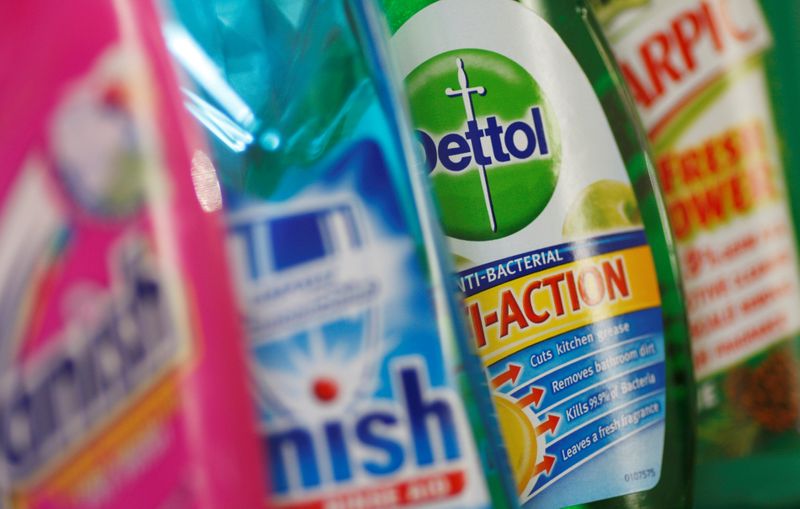By Martinne Geller and Arno Schuetze
LONDON/FRANKFURT (Reuters) - Consumer goods group Reckitt Benckiser Group (L:RB) is preparing to sell some of its non-core personal care brands, including Veet hair removal cream and Clearasil acne cream, four sources familiar with the matter said on Monday.
The package of brands up for sale - which also includes E45 skin cream and Scholl foot products - could be worth as much as 1 billion pounds ($1.3 billion) in a sale, two of the sources said, based on estimates of annual earnings before interest, tax, depreciation and amortisation north of 120 million pounds.
The process comes as Reckitt is generating unusually strong sales in its hygiene business due to the COVID-19 pandemic, as people snap up its Lysol and Dettol disinfectants. It is also a strategic step for its new chief executive, Laxman Narasimhan, who has been in the top job for one year.
Veet hair removal creams may also be seeing a boost, another source said, as people curb salon visits and do more grooming at home.
Reckitt is working with advisers and has already sent out information on the assets, two of the sources said.
Reckitt declined to comment.
The brands are likely to appeal to private equity players, the sources said, since they are cash-generative.
They do not fit into the two main businesses Reckitt has been focusing on - health and hygiene.
Unilever (L:ULVR) (AS:UNA), Beiersdorf (DE:BEIG) and Henkel (DE:HNKG_p) all sell personal care products and also therefore could be potential suitors, the sources said. Beiersdorf and Henkel, both based in Germany, are interested in parts of the package, two of the sources said.
Henkel declined to comment. Beiersdorf and Unilever were not immediately available.
UK-based Reckitt, which started out as a home cleaning company, for years worked to build out its health-related business, which includes Enfamil formula, Durex condoms and Nurofen tablets.
A strategy by previous management to separate the health and hygiene units into two stand-alone, in-house businesses, which led to speculation of a corporate break-up, was later scrapped.

($1 = 0.7753 pounds)